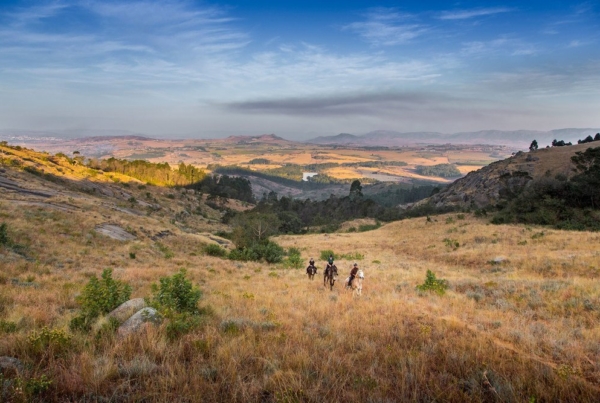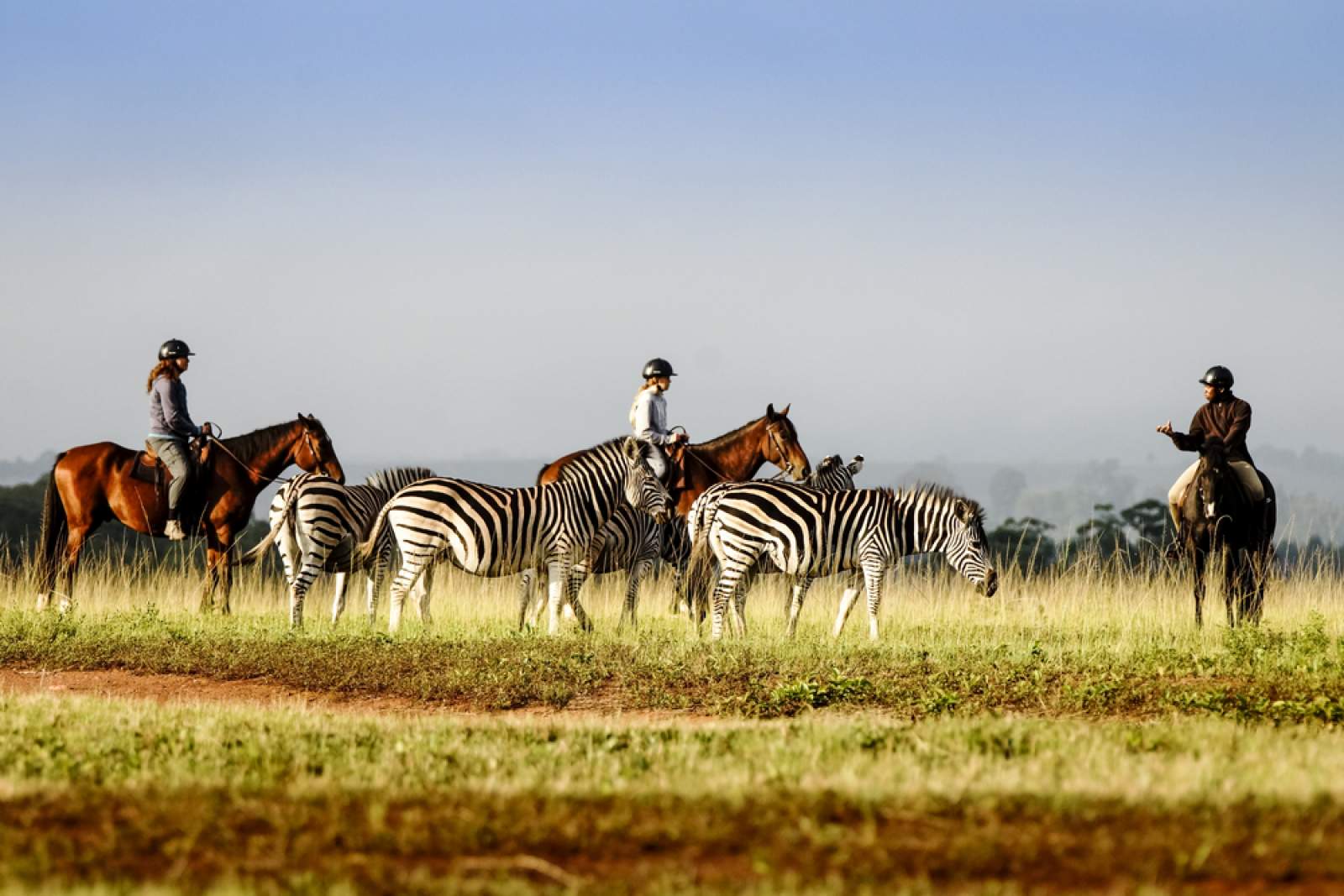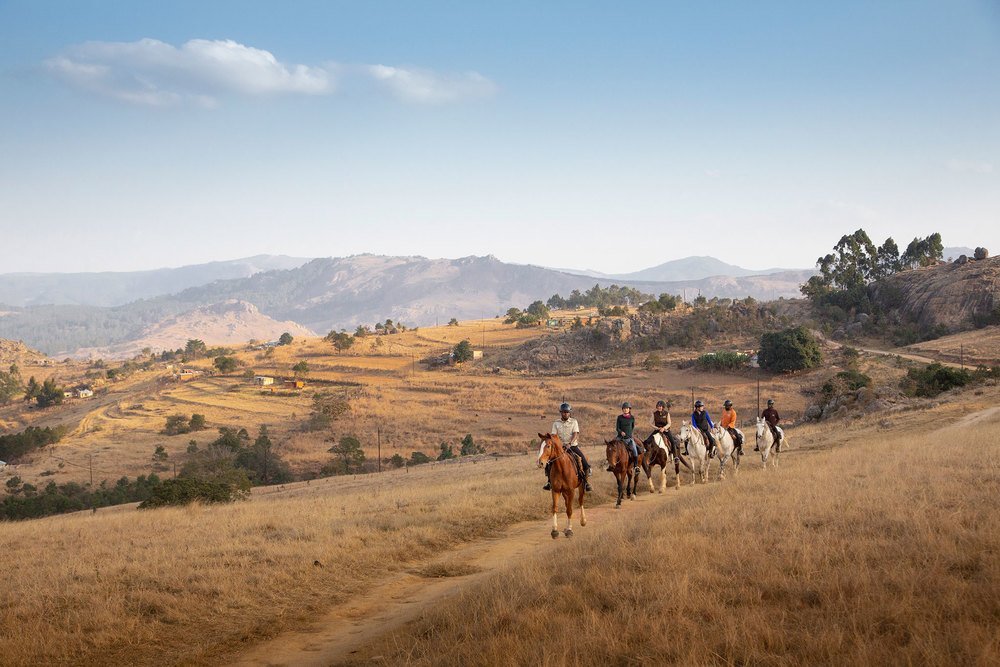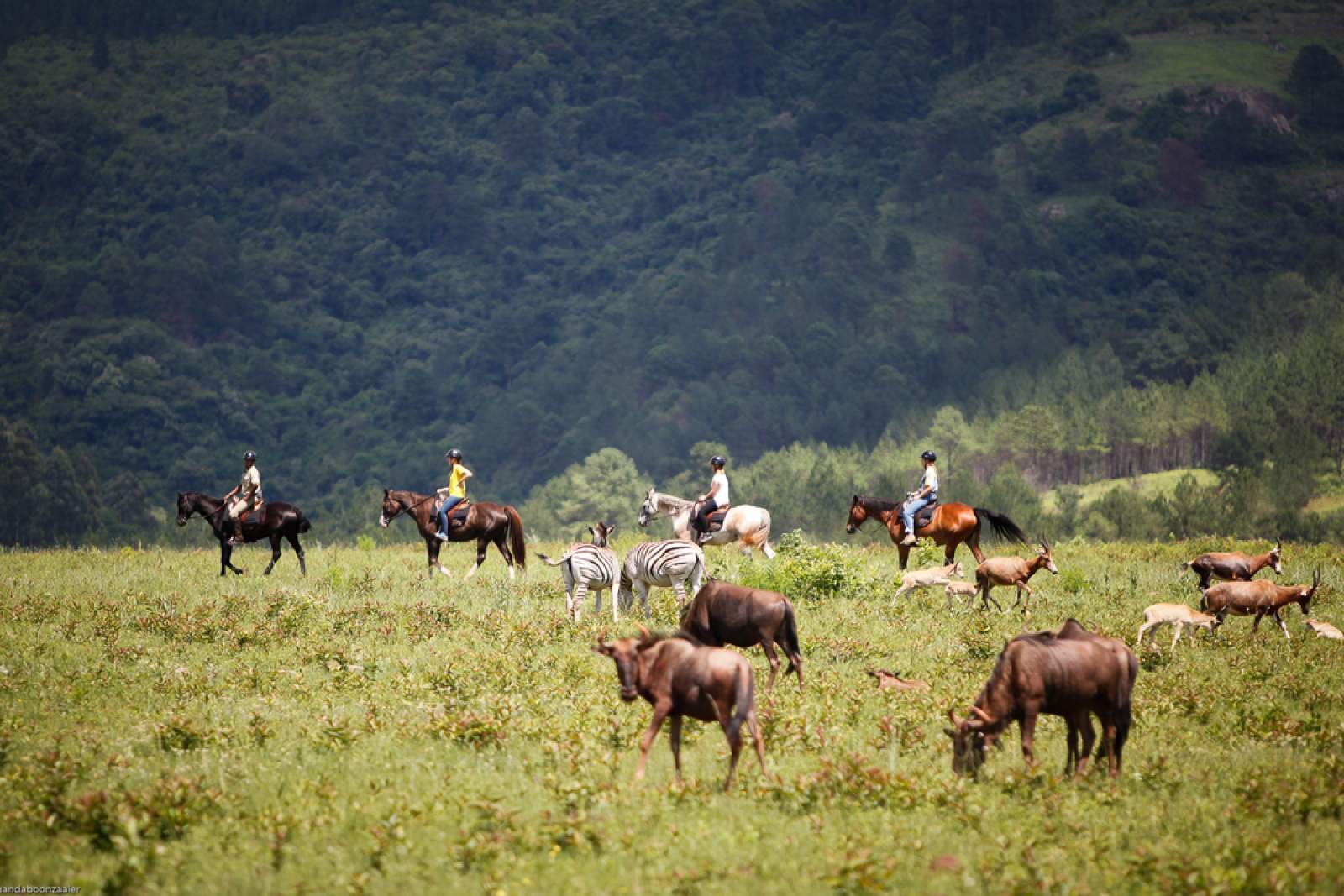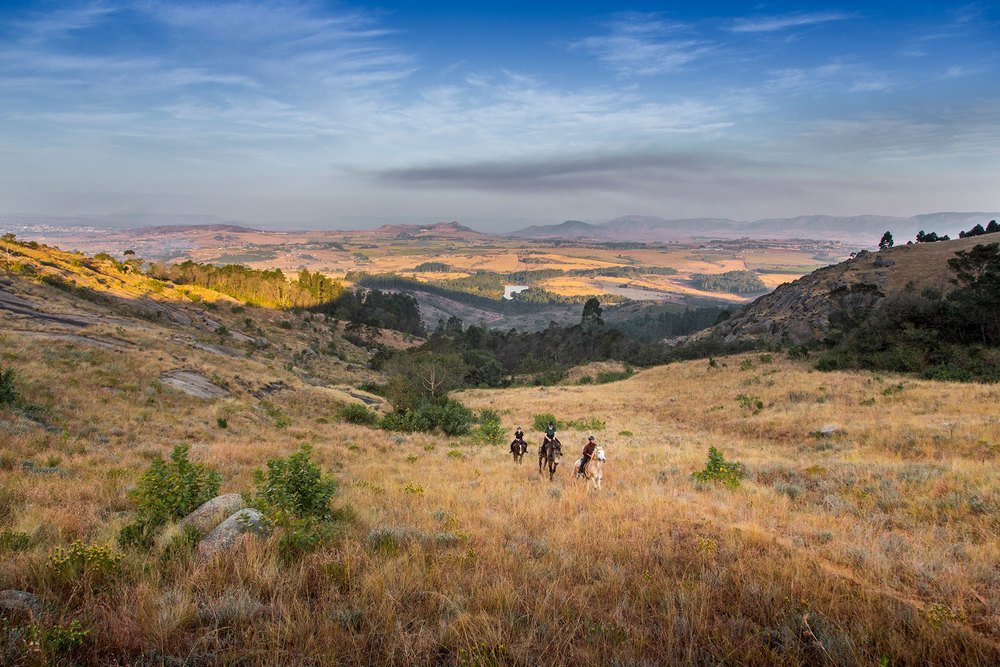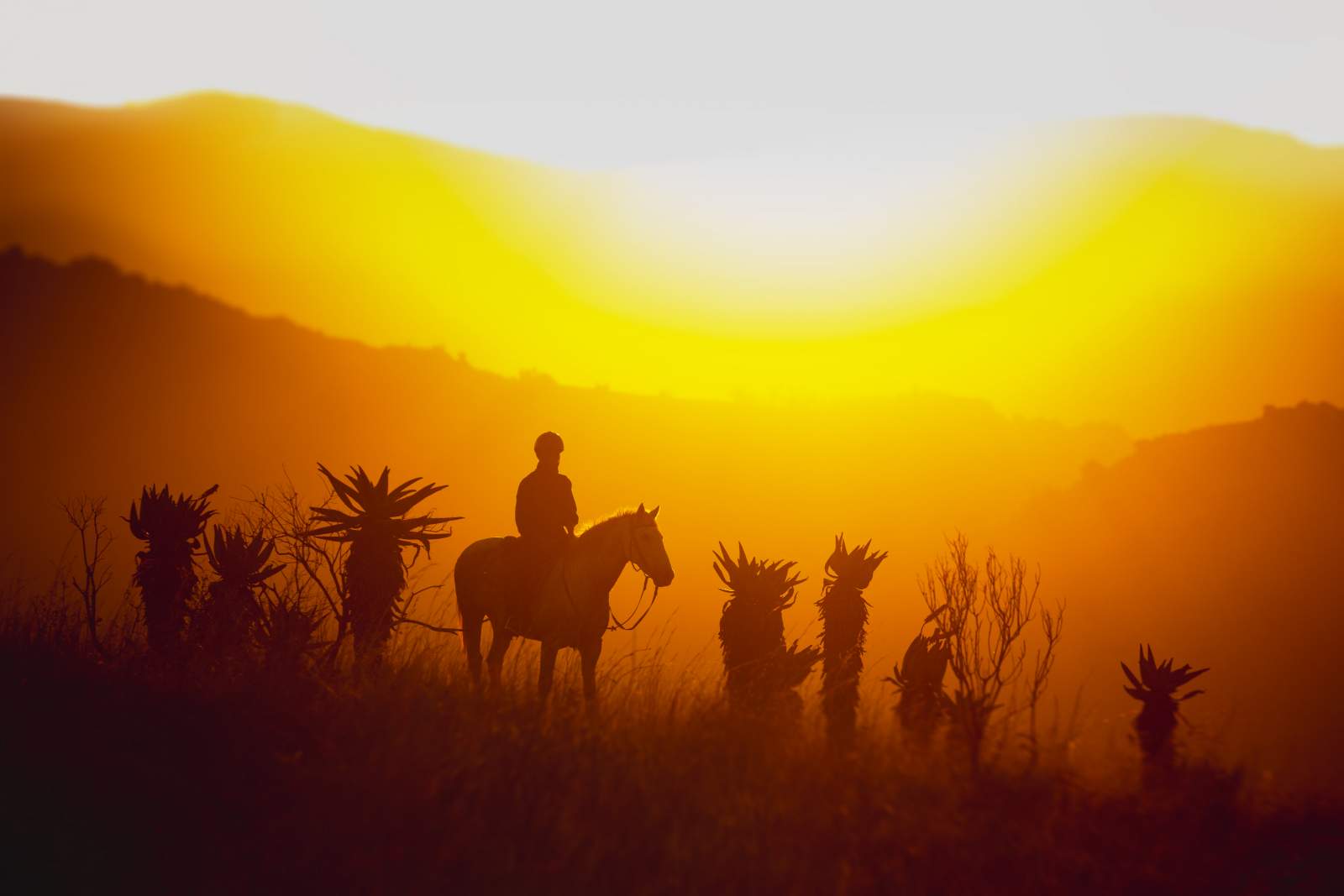Enjoy one of Africa’s Kast Kingdoms on Horseback
Travel back in time, to a world where time stands still and enjoy the scenery, wildlife and culture of one of Africa’s last Kingdoms on horseback.
Eswatini offers horse enthusiasts the opportunity to discover this beautiful country along several horse-riding trails, from 3 to 9 nights, depending on experience and ability. The forests, mountains and grasslands provide long and rewarding hours in the saddle with fast canters and slow descents, giving riders time to take in the breathtaking scenery.
From the moment you enter the Kingdom of Eswatini (formerly known as Swaziland), there is no mistaking why the Swazi King fought so hard to gain independence of these pristine mountains, rainforests and valleys. Eswatini is like an island without a coast: it’s surrounded by South Africa on three sides (north, south and west) and Mozambique to the east. This tiny landlocked country is known for its wilderness reserves and colourful Swazi culture. The diverse landscape and plentiful wildlife have resulted in this unique country becoming an increasingly popular horseback safari destination.
